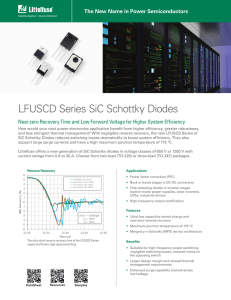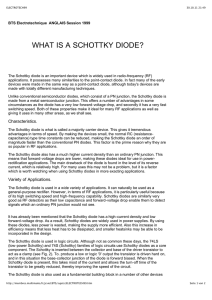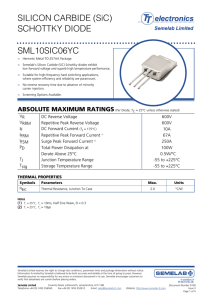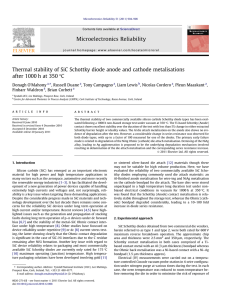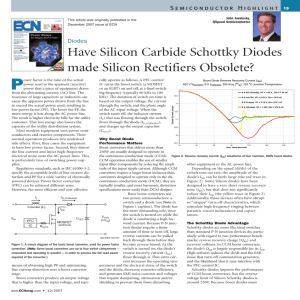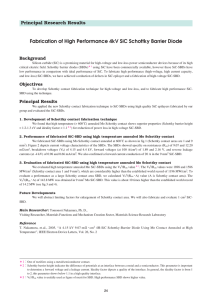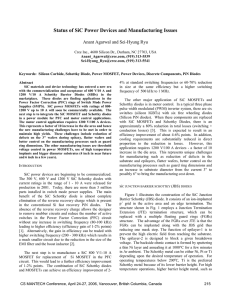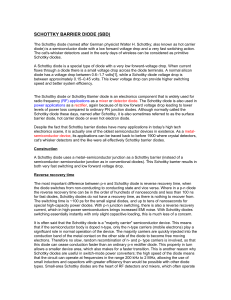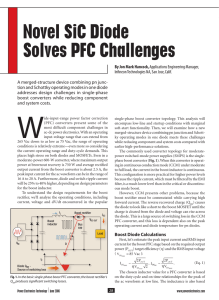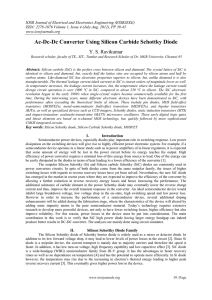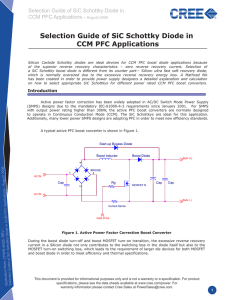Novel Carbon-Silicon Schottky Diodes
advertisement
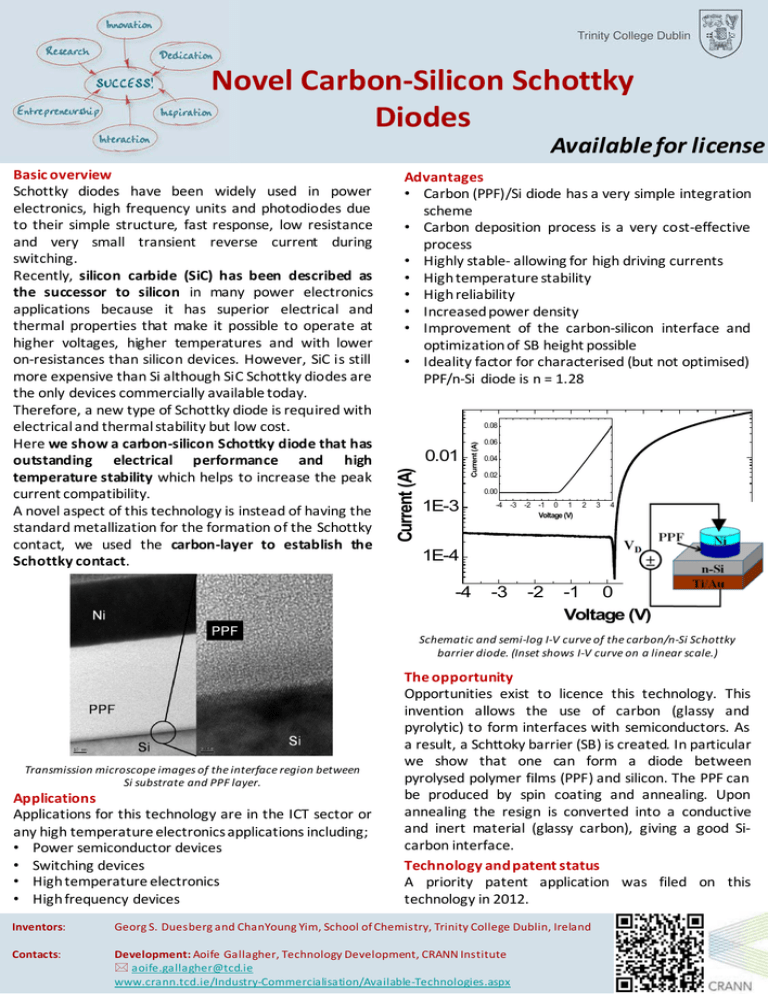
Novel Carbon-Silicon Schottky Diodes Available for license Advantages • Carbon (PPF)/Si diode has a very simple integration scheme • Carbon deposition process is a very cost-effective process • Highly stable- allowing for high driving currents • High temperature stability • High reliability • Increased power density • Improvement of the carbon-silicon interface and optimization of SB height possible • Ideality factor for characterised (but not optimised) PPF/n-Si diode is n = 1.28 0.01 Current (A) 0.08 Current (A) Basic overview Schottky diodes have been widely used in power electronics, high frequency units and photodiodes due to their simple structure, fast response, low resistance and very small transient reverse current during switching. Recently, silicon carbide (SiC) has been described as the successor to silicon in many power electronics applications because it has superior electrical and thermal properties that make it possible to operate at higher voltages, higher temperatures and with lower on-resistances than silicon devices. However, SiC is still more expensive than Si although SiC Schottky diodes are the only devices commercially available today. Therefore, a new type of Schottky diode is required with electrical and thermal stability but low cost. Here we show a carbon-silicon Schottky diode that has outstanding electrical performance and high temperature stability which helps to increase the peak current compatibility. A novel aspect of this technology is instead of having the standard metallization for the formation of the Schottky contact, we used the carbon-layer to establish the Schottky contact. 0.06 0.04 0.02 0.00 1E-3 -4 -3 -2 -1 0 1 Voltage (V) 2 3 4 1E-4 -4 -3 -2 -1 0 1 Voltage (V) 2 3 4 Schematic and semi-log I-V curve of the carbon/n-Si Schottky barrier diode. (Inset shows I-V curve on a linear scale.) Transmission microscope images of the interface region between Si substrate and PPF layer. Applications Applications for this technology are in the ICT sector or any high temperature electronics applications including; • Power semiconductor devices • Switching devices • High temperature electronics • High frequency devices The opportunity Opportunities exist to licence this technology. This invention allows the use of carbon (glassy and pyrolytic) to form interfaces with semiconductors. As a result, a Schttoky barrier (SB) is created. In particular we show that one can form a diode between pyrolysed polymer films (PPF) and silicon. The PPF can be produced by spin coating and annealing. Upon annealing the resign is converted into a conductive and inert material (glassy carbon), giving a good Sicarbon interface. Technology and patent status A priority patent application was filed on this technology in 2012. Inventors: Georg S. Duesberg and ChanYoung Yim, School of Chemistry, Trinity College Dublin, Ireland Contacts: Development: Aoife Gallagher, Technology Development, CRANN Institute aoife.gallagher@tcd.ie www.crann.tcd.ie/Industry-Commercialisation/Available-Technologies.aspx
